Your lungs are responsible for drawing in life-giving oxygen everyday, but they face a lot of challenges.
Pollution, smoking or exposure to cigarette smoke, chronic diseases, infections, and even the aging process can all decrease lung health, sometimes dramatically. Poor lung function means a lower quality of life and can affect your whole body.
Genetics, exercise level, and environmental conditions all play a role in lung health, but diet is also a very important factor.
There are some specific foods (including herbs and spices) you can eat to give your respiratory system a boost. Here’s a look at the top foods for healthy lungs and why each one is beneficial.
Top Foods for Healthy Lungs
Blueberries
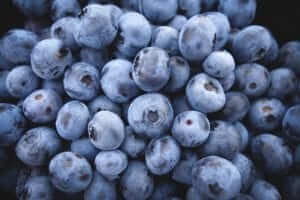
Blueberries are packed full of nutrients that have many health-promoting benefits. They contain plant compounds known as anthocyanins, which are responsible for the blue color of the fruit.
Besides providing pigmentation, anthocyanins have demonstrated lung-protective properties in studies. They have shown an ability to protect lung tissue from damage caused by oxidative stress and to have an anti-inflammatory effect on chronic obstructive pulmonary disease (COPD).
One study found that regularly consuming anthocyanin-rich foods may slow age-related decline in lung function. Blueberries had the biggest impact on lung health, and only two servings a week were needed for good results.
Tomatoes
Another plant compound associated with lung health is lycopene. Tomatoes are one of the richest sources of this antioxidant, which has even shown potential for preventing lung cancer.
Lycopene is what’s known as a carotenoid antioxidant and likely works by decreasing inflammation in your airway, improving lung function.
Studies have shown that regularly consuming tomatoes can slow the decline of lung function and is beneficial for asthma sufferers. The same studies also indicate that lycopene and tomatoes especially benefit ex-smokers.
Most tomato products will give you a good amount of lycopene, and sun-dried tomatoes are one of the most concentrated sources of it.
Apples
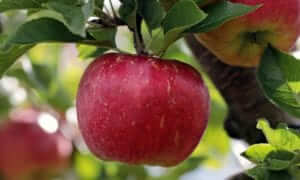
As it turns out, there’s actually a lot of truth behind the saying about apples keeping the doctor away. Regularly eating apples may reduce your risk of developing several age-related diseases and also supports better lung function.
Research has indicated that eating 5 or more apples a week can improve your lung function and reduce your risk of getting certain respiratory diseases like COPD.
The same study that found the benefits of tomatoes for your lungs also confirms that eating apples can prevent the decline of lung function. An apple a day is great for your lungs as well as the rest of your body!
Beets
Not everyone likes the earthy taste of beets, but they are definitely one of the top foods for healthy lungs.
Along with powerful antioxidants, beetroot contains plant compounds called nitrates. Nitrates have been shown to support healthy lungs and to benefit your vascular system- the system that carries oxygen throughout your body- as a whole.
Studies have shown that supplements made out of beets can help specific lung conditions like pulmonary arterial hypertension and COPD.
If you prefer to eat the leafy beet tops instead, they also have antioxidants and nutrients that are beneficial for lung health.
Bananas

Bananas are high in potassium, a nutrient that has been linked to lung health. Specifically, potassium helps your lungs to expand and contract, which means a deficiency could cause problems like shortness of breath.
The respiratory benefits of this yellow fruit also go beyond potassium content. Alongside apples, bananas were found to specifically slow the decline of lung function that comes with age. A study based on a survey of children aged 5-10 also showed that banana consumption helped to reduce childhood wheezing.
Daily consumption of banana seems to have the best effect on lung health, so don’t be afraid to reach for them often!
Green Tea
Green tea could be considered a superfood (or superdrink) because of its long list of impressive health benefits. Most of these are linked to its high epigallocatechin gallate (EGCG) content.
EGCG is a powerful antioxidant and anti-inflammatory compound. It has many benefits for protecting your body from free radical damage that causes age-related disorders and also has several benefits for lung health.
Research has shown that drinking 2 cups of green tea a day is associated with a lower risk of developing COPD. In lab tests, EGCG has shown an ability to suppress the growth of lung cancer cells. EGCG has also shown potential to help treat pulmonary fibrosis, a disease that involves the scarring of lung tissue.
If that weren’t enough, green tea also contains a compound called theophylline, which can help to open your airway and increase airflow to your lungs.
Cocoa

Sugar-laden milk chocolate and candy bars may not be good for you, but cocoa powder and dark chocolate have serious health benefits.
Products with a high amount of cocoa (or raw cacao) have a correspondently high antioxidant content. They also contain a compound called theobromine that has a confirmed ability to relax muscles in your airway, letting more oxygen pass.
Regular consumption of cocoa is linked to fewer allergies and allergic respiratory symptoms. The flavonoids (a type of antioxidant) found in cocoa can also improve your overall lung function and may reduce the risk of lung cancer.
Remember, the darker chocolate is, the higher its cocoa and flavonoid content. Raw cacao powder has the highest amount of antioxidants because it hasn’t been processed with heat, which makes it great for lung support.
Leafy Greens
Leafy greens contain a lot of nutrients, especially minerals, that make them some of the best foods for healthy lungs.
Magnesium, in particular, plays a big role in preventing inflammation and restriction in your airway. Low magnesium levels are linked to a worsening of symptoms in those with COPD.
Multiple studies have shown that leafy greens can lower your risk of both lung cancer and COPD. However, greens need to be consumed frequently to really have an impact on reducing your risk of getting lung cancer.
Swiss chard is especially high in magnesium and is a great leafy green to eat regularly. Other good choices include spinach, kale, collard greens, arugula, and beet greens.
Foods High in Vitamin C

Vitamin C is an essential nutrient and a powerful antioxidant. It has well-known benefits for your immune system and for maintaining youthful skin. Newer research is demonstrating that it’s also an important nutrient for lung health.
The detrimental effects of smoking on lung health are pretty clear, but a 2015 study found that supplementing with vitamin C can improve lung function in smokers.
Other research indicates that vitamin C can help with respiratory symptoms that are brought on by exercise. There also seems to be a correlation between low vitamin C levels and a higher risk of respiratory infections. This could mean that a diet high in vitamin C will help your body fend off common lung-related infections.
Healthy foods that are rich in vitamin C include colored bell peppers, citrus fruits, berries, chili peppers, leafy greens, broccoli, kiwi, and papaya.
High-Fiber Foods
You probably known that fiber is good for digestive health, but it’s also proving to be good for lung health.
One study that evaluated nearly 2000 adults found that higher fiber intake corresponded with better lung function. Other research indicates that a diet high in dietary fiber can offset some of the inflammation caused by cigarette smoke. It may also help with the prevention or treatment of COPD.
The best way to get a high amount of dietary fiber is to include more plants in your diet. Fruits, vegetables, whole grains, beans, lentils, seeds, and nuts all contain good amounts of fiber (as well as other health benefits).
Herbs and Spices to Eat for Healthy Lungs
Herbs and spices are important foods for healthy lungs because they contain a lot of concentrated nutrients that can really make an impact. Many are “everyday” herbs that you wouldn’t suspect of having respiratory benefits.
Here’s a look at the best ones to add more of to your diet.
Garlic

Garlic is a potent spice with many health benefits. If you’ve ever been stuck with garlic breath, you’ve already experienced its affinity for the lungs. Even after being broken down by your digestion, certain garlic compounds are carried through your bloodstream to your lungs where they continue to affect your breath.
In studies, garlic has been linked to a lower risk of lung cancer (when consumed raw) as well as the reduction of oxidative stress in many parts of your body, including your lungs.
A powerful antimicrobial compound in garlic, allicin (diallylthiosulfinate), has also demonstrated an ability to kill harmful bacterial pathogens that can cause lung infections.
It’s important to note that allicin is only produced when garlic is chopped or crushed before being cooked. Letting it stand for 10 minutes prior to cooking also increases the amount of health-promoting allicin and benefits your lungs even more.
Turmeric
Turmeric has quickly become a superfood because of its many health benefits. Most of these benefits are linked to the main active compound in turmeric: curcumin.
Curcumin is a potent anti-inflammatory and has shown an ability to improve overall lung function.
One study conducted with Asian adults who frequently ate turmeric-rich curry found that those who regularly consumed curcumin through the curry had better lung function. The turmeric seemed to have an even greater positive effect on the respiratory health of smokers.
There have also been studies indicating that curcumin can help treat lung cancer and other lung diseases, but more research is needed to determine specifics.
If you want to add turmeric or a curcumin supplement to your diet, make sure you mix black pepper with the turmeric or get a supplement with piperine. Both increase the bioavailability of curcumin by up to 2000%!
Ginger
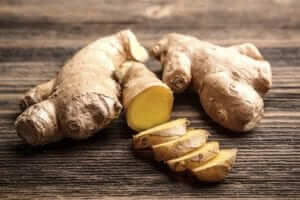
Ginger is a spicy root that is a favored remedy during cold and flu season. It has a warming action that helps to break up mucus and clear congestion in your chest.
Regularly consuming ginger also has benefits for the overall health of your lungs. It has antioxidant and anti-inflammatory properties that protect respiratory health and prevent oxidative damage to your lungs.
Other studies have found that ginger can relax bronchial muscles, helping to open your airway and promote deep breathing. This effect can be especially helpful for those who struggle with asthma. A ginger extract also showed an ability in animal studies to protect the lungs from damage caused by inflammation.
A little ginger can go a long way. Try adding it to Asian dishes, taking the powder in capsules, or drinking ginger tea regularly. It also combines well with other foods for healthy lungs, including sweet options like apples.
Thyme and Oregano
Oregano and thyme are two common kitchen herbs that are very beneficial for your lungs.
Thyme has a long history of being used for respiratory ailments. It acts as a natural expectorant to help your lungs expel mucus and can even ease coughing when used as a tea or syrup.
A recent study examined some of the traditional uses for thyme. It found that an extract had a significant anti-inflammatory effect on lung cells and could be helpful for chronic inflammatory lung diseases. The thyme extract also showed activity against lung cancer cells.
Other studies, including one done in 2018, have found that thyme may help treat symptoms of COPD and can reduce coughing fits.
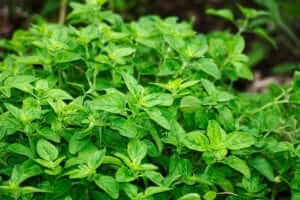
Oregano is a natural decongestant and supports overall lung health. It contains two strong compounds: carvacrol and rosmarinic acid. In studies, carvacrol has shown activity against lung cancer, and rosmarinic acid has proved beneficial for asthma as well as protective against lung injury.
An extract of oregano has also shown an ability to protect lungs from oxidative damage.
Don’t underestimate the power of herbs that are already in your kitchen cupboard! Both oregano and thyme are protective for your lungs and can also support your body during acute respiratory illnesses.
Eating Well for Healthier Lungs
Although there are many factors that affect the health of your lungs, diet is one of the easiest to control and change. As you can see from this list of foods for healthy lungs, eating more plants is highly beneficial for respiratory health.
Plant-based foods typically have the fiber and antioxidant content that are so beneficial for lung health. Antioxidants, especially, protect your whole body from age-related problems, and this includes lung function decline.
You now have an idea of which specific fruits, vegetables, herbs, and spices can benefit your lungs. Start filling up on them, especially during seasons that are more challenging for respiratory health!
NEXT UP: Amazing Health Benefits of Little-Known Leaves, Bark, Berries, and Nuts from Common Trees!
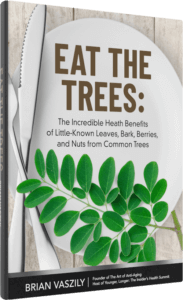
Did you know that the berries from a very common backyard tree can help combat heart problems, hair loss, and digestive issues… the flowers from a gorgeous tree can help fight obesity and fat build-up in the liver… the leaves from America’s “most-loved” tree are like a fountain of youth for your skin?
Even more exciting, you’re about to discover incredible health benefits of little-known leaves, berries, nuts, flowers, and bark that are easily available to you, and that you need to know about.
If you love trees, you’re about to love them a WHOLE lot more because of this important and new evidence-based 18-page report.
It’s yours FREE and immediately when you join our free Living Your Best Life group on Facebook.


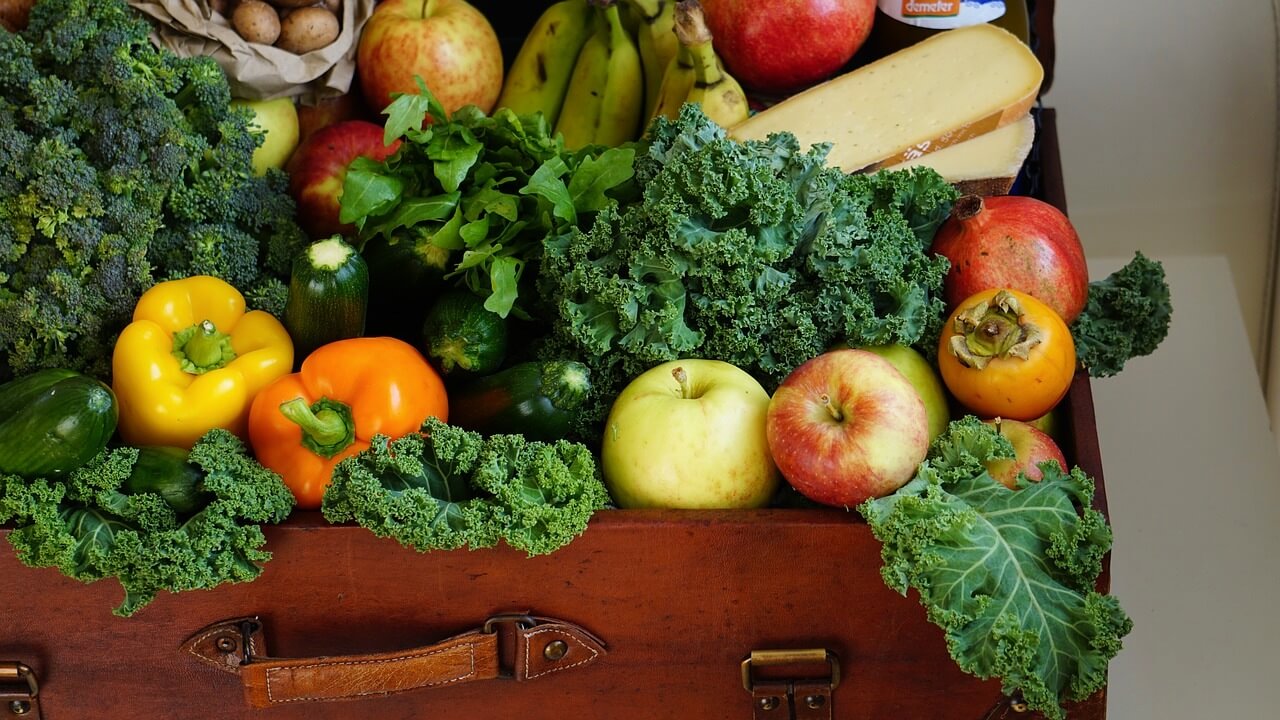
Fantastic health intel !
Thankyou so much .
Will share 🤗🌈
Thank you for all the wonderful welcoming info! I will use it n my everyday life! So thankful! Can’t thank you enough
Thank you so much ♡
Sharing!
Hi
Wow great information. Will definitely be more aware now. I prefer natural remedies and I’m grateful for this. Thankyou Firhana
Such an excellent article!
Very, very helpful to know. Thanks.
THANK YOU SO MUCH FOR THIS WONDERFUL ARTICLE ! I TRUST what you have shared with us ….with much appreciation …
Love all your articles & jokes -I share with my contacts. Thank you very much Brian.
Sydney
Australia
George and I appreciate your work and care So Much.
Keep it up and my God continue to bless you and your family.
Wonderful information. Thank you.